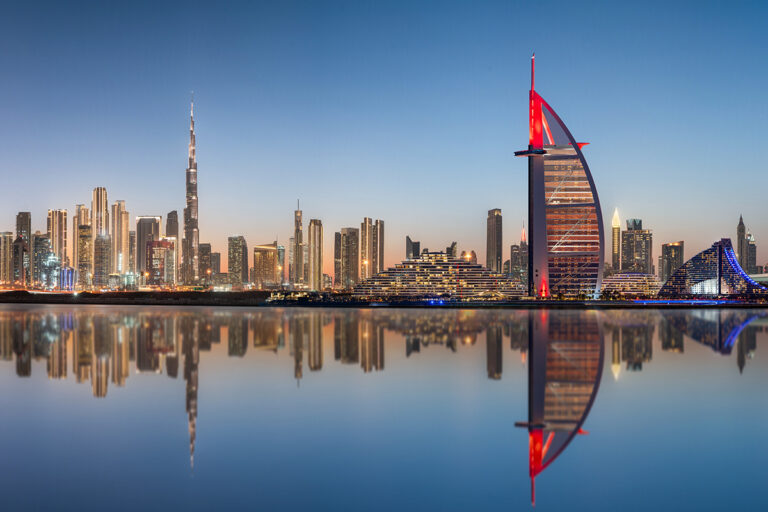Real estate markets in the Gulf are on track to extend their rally into the second half of 2025, with sales activity in Dubai, Saudi Arabia and Kuwait posting double-digit growth, according to Kuwait Financial Centre “Markaz.”
In its latest market outlook, Markaz said resilient demand across residential, commercial and hospitality sectors had lifted prices and transactions in the first half of the year, with lower interest rates and continued government spending expected to sustain momentum through the rest of 2025.
“The overall outlook for the GCC real estate sector remains positive,” Markaz said in the report, noting investor appetite and diversification projects continue to underpin performance despite fiscal pressures in some markets.
Dubai leads on global stage
The UAE real estate market delivered the strongest results among GCC peers. Transaction values reached AED 239 billion ($65 billion) in the first quarter of 2025, with Dubai accounting for AED 142 billion of that total from 45,077 transactions, a 30 per cent year-on-year increase.
For 2024 as a whole, Dubai recorded AED 761 billion in real estate sales, up 20 per cent year-on-year, with 226,000 transactions – a 36 per cent jump – and more than 110,000 new investors, a 55 per cent increase.
Dubai and Abu Dhabi also continued to post rental yields above global benchmarks, with Dubai at 7.6 per cent in May 2025, compared with 5.3 per cent in New York, 3.2 per cent in Singapore and 3.1 per cent in London.
Markaz said the residential, office and hospitality segments in the UAE would remain supported in the second half by strong demand, lower borrowing costs, rising tourism and tight supply in prime areas, though it added that new supply could begin to stabilise rental rates.
Saudi Arabia sustains momentum
Saudi Arabia’s real estate sector also gained pace in early 2025, underpinned by the Kingdom’s diversification agenda. The country’s property price index rose 4.3 per cent year-on-year in the first quarter, while total real estate sales climbed 37 per cent year-on-year.
Residential property prices increased by 5.1 per cent and commercial property values rose by 2.5 per cent. Demand for commercial space remained firm on the back of non-oil economic growth.
Markaz cautioned that Saudi Arabia’s fiscal deficit is expected to widen to 4.9 per cent of GDP this year from 2.8 per cent in 2024 due to weaker oil revenues. However, it said Riyadh has indicated it will maintain investment levels in diversification projects, which should continue to support the property sector.
Kuwait sees broad-based recovery
Kuwait’s property market showed signs of steady recovery in the first quarter of 2025, with land prices and rental values rising in both investment and commercial segments.
Real estate sales reached KD 896 million ($2.9 billion) in Q1, a 45 per cent increase from the same period a year earlier. Gains were recorded across all segments, with investment sales up 49 per cent year-on-year, residential sales higher by 38.5 per cent, and commercial sales up 22.9 per cent.
The number of transactions rose by 20.9 per cent overall, with commercial deals jumping 163.6 per cent. Investment segment transactions increased 29.7 per cent, supported by growth in the expatriate population.
Markaz said Kuwait’s real GDP is forecast to grow by 1.9 per cent in 2025, reversing a 2.8 per cent contraction in 2024. It expects project activity, consumer spending and legislative reforms to bolster demand in the commercial and industrial real estate sectors.
The Markaz Real Estate Macro Index for Kuwait stood at 3.25 out of 5.0 in the first half, signalling stable market conditions with room for further gains.
Markaz said macroeconomic indicators, combined with strong investor interest and continued government-backed projects, position the GCC property sector for further growth in the second half of the year.
It added that while fiscal challenges remain, particularly in Saudi Arabia, the combination of lower interest rates, diversification efforts and sustained demand makes the region’s property markets attractive for investors and developers.





